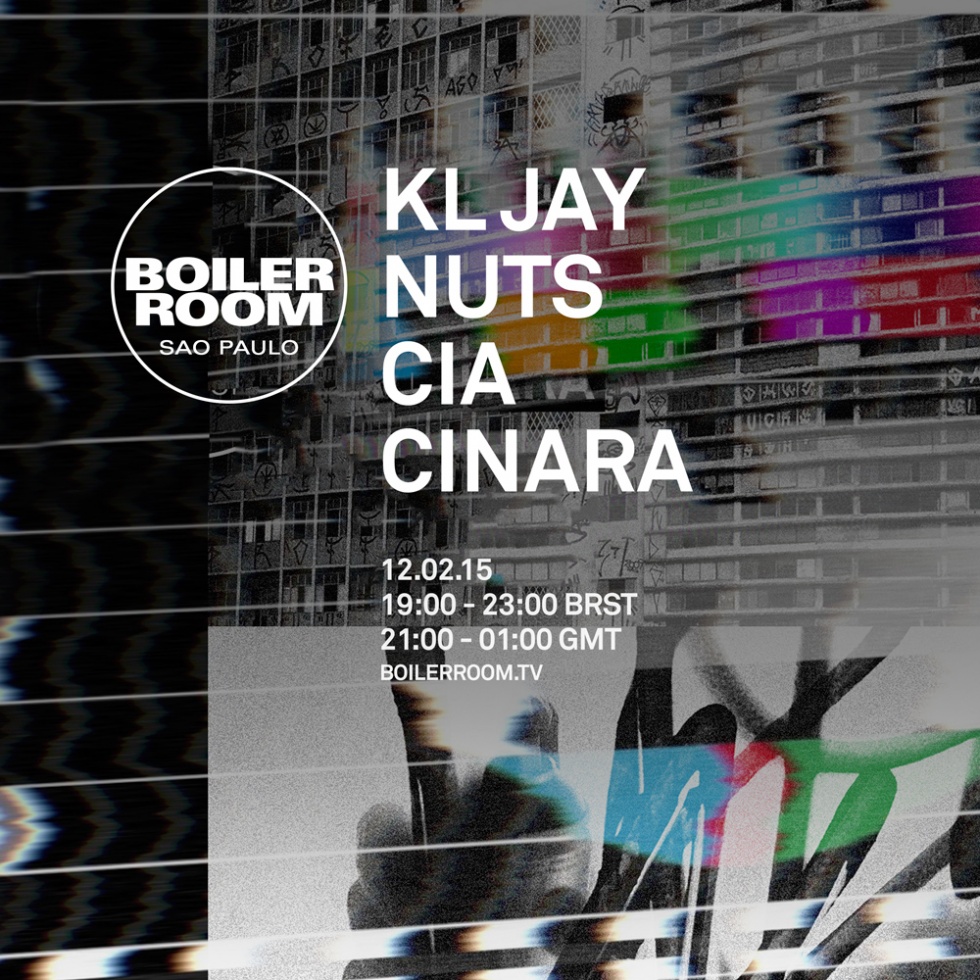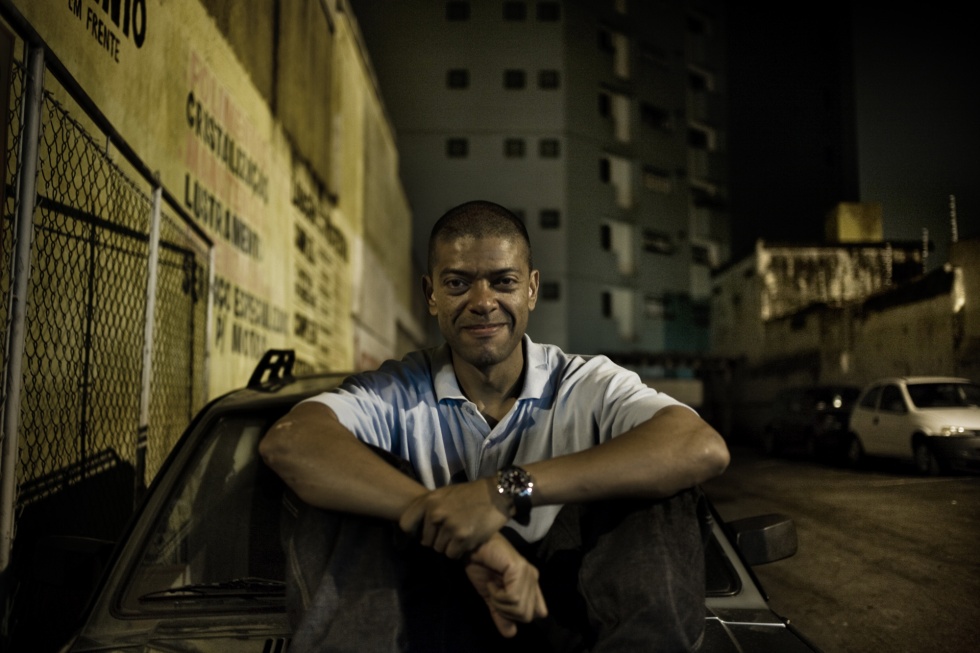 It’s important to explain something: São Paulo is the largest city in South America, a megalopolis with 20 million residents that is staggering in its scope and dark, problematic beauty. It’s been compared frequently to a tropical incarnation of Blade Runner, with almost every block of the city’s centre, which goes on for miles and miles, featuring a concrete skyscraper. As regular folks sit in traffic or on buses below, São Paulo’s significant number of mega-rich zoom above them on personal helicopters, preferring not to step foot on the ground below. On the outside of the city, poor neighbourhoods go on and on, supplying the labour for the state capital, and usually, most of its cultural inspiration.
It’s important to explain something: São Paulo is the largest city in South America, a megalopolis with 20 million residents that is staggering in its scope and dark, problematic beauty. It’s been compared frequently to a tropical incarnation of Blade Runner, with almost every block of the city’s centre, which goes on for miles and miles, featuring a concrete skyscraper. As regular folks sit in traffic or on buses below, São Paulo’s significant number of mega-rich zoom above them on personal helicopters, preferring not to step foot on the ground below. On the outside of the city, poor neighbourhoods go on and on, supplying the labour for the state capital, and usually, most of its cultural inspiration.
It’s here that Brazilian hip hop was born and grew up. Hip hop here, both musically and culturally, has its own local features that are different from the scenes in the rest of the world — and definitely different from the culture in the US, which first inspired Brazil’s movement.
“Want to come enjoy some loneliness? Come to São Paulo”
On the 12th of February, Boiler Room is proud to present sets from 3 legends, and one up-and-comer that have one foot or the other squarely in this culture. KL Jay, the DJ behind legendary rap group Racionais MCs, still as active as ever since forming in the city’s outskirts slums in the 80s, and one of the continent’s best DJs. NUTS, another of Brazil’s most renowned DJs, represents the old guard of Brazilian diversity and tropical flavour, with a special set of Brazilian music with a hip hop touch. CIA is a founding member of rap group RZO and now traveling “vilão dos toca-discos,” while Cinara is widely celebrated wunderkind and represents the new generation.
The four artists mix together old standards from the Brazilian hip hop scene with new tracks from North America or Jamaica, alongside classically Brazilian genres, plus the participation of an array of São Paulo’s young rappers that perform along with KL Jay and CIA. In his unique set, meanwhile, NUTS skilfully brings to the fore his deep knowledge of classic Brazilian music and puts it all together in brand new forms, all-in-all making for 4 hours of extremely diverse sets.
“Want to come enjoy some loneliness? Come to São Paulo,” said rapper Mano Brown, of Racionais MCs once, during a free show that packed the city’s masses into its dilapidated downtown. The apparent strangeness of such a comment at such a moment tells you a lot about São Paulo. It’s gigantic, cannibalistic, and cruel, made up of migrants and immigrants, it’s where everything happens, but also a place you can get lost. That must be why those that live here have the strong sensation of being São Paulo. With so many people here from all around the country, and the world, it’s natural that the city would host a widely diverse musical culture. That’s true, but no other sonic language has been so fully realised, applied, and recontextualised to speak of this place as hip-hop.
The genesis of hip hop in Brazil were bailes black, or “black” parties like Chic Show, Kaskatas, Black Mad, Zimbabwe, and Circuit Power. Some of these parties started to play what they called, “funk falado”, or “spoken funk” and rap battles took shape, in addition to shows by American artists like Kool Moe Dee – who performed in Sao Paulo in 1988. From the meeting points at the São Bento Metro station to the first Brazilian singles, to the first collections and albums, is a road that hasn’t been sufficiently documented. According to KL Jay, the origin of Brazilian hip-hop was “Pepeu & Mike, MC Jack and DJ Ninja, Thaíde and DJ Hum.”
After these first stages, the first media coverage and first shows, rap became linked with Brazil’s so-called “Black Movement.” This led to the creation of a joint ideology that gave Brazilian rap the strength to percolate around the entire country and become the voice of the poor outskirts of its cities. Racionais was the first large group to captain this movement, and has served as a reference for all of those that have rapped and taken risks since they started. São Paulo was the takeoff point for the genre to take over Brazil as the combative self-expression of poor black youth.
Technically speaking, Brazilian rap has a number of defining characteristics. Its production is stripped down and subtle, and its lyrics are often poetic, philosophical, or political. Brazilian rhythms enter sporadically, but so does the Portuguese-language lyrical tradition, with more muted verses than shouted choruses, in dramatic contrast to Rio’s baile funk. Whereas in the US, hip hop has long become casual party music everyone is into, Brazilian hip hop is quite serious. As one famous song, by Sabotage puts it – in a phrase also scrawled across the shirt of the young teenage girl who sells drinks on the street downstairs from the Boiler Room location – “Rap is a commitment.”
“In a lot of countries, rap has become popular and accepted amongst a range of social classes… but in Brazil it’s still quite an underground scene”
More recently, a new generation of independent hip hop musicians has flowered, adding themes and arrangements, introducing new flows and production styles. Without losing their connection to the city’s scene, the new kids have taken it into new corners, and have themselves been embraced by the old guard. Whereas the older groups had openly refused to participate in Brazil’s white, corporate media, the younger generation now interact, but treat Brazil’s outlets with healthy doses of mistrust. The new crop is put forth in the Boiler Room sets, on record and through live participation from Bitrinho, Flow MC e Filiph Neo.
KL Jay has worked on his own output alongside the ongoing Racionais’ legacy, usually alongside young MC s from the new generation, presented “Yo! MTV Raps” on MTV Brazil and runs the “Estamos vivos” – “we are live” – show with Noisey. “Hip hop, for me, is a style of life, 24 hours a day,” he says. DJ Cinara, meanwhile, whose skills were showcased in the Red Bull Thre3style contest, is the young girl amongst the older legends. In her set, she mixes up new names like Flora Matos, Pulse011 e Karol Conka, with classics like Racionais, Trilha Sonora do Gueto e RZO. “In a lot of countries, rap has become popular and accepted amongst a range of social classes… but in Brazil it’s still quite an underground scene,” says Cinara. “[In Brazil] there’s nothing wrong with talking about joy or parties, because that’s real, we are happy, that’s our reality, but in the world of rap there is still a feeling of responsibility to represent the reality of forgotten or underrepresented communities.”
“I’m sometimes sad to see that Brazilians are so influenced by the US that they don’t embrace music produced here.”
NUTS is from the old guard of DJs in Brazil, he started early, and is a dedicated student and collector of Brazilian music and DJ who has gained international notoriety. He has worked with groups like Planet Hemp and current rapper Marcelo D2. “All of my time is dedicated to finding records,” he says; “always mining for Brazilian music or rap, trying to keep my work fully independent of trends or fashion, since the younger generation tends not to know the fundamentals. I’m sometimes sad to see that Brazilians are so influenced by the US that they don’t embrace music produced here. I play rap in Brazil and Brazilian music when abroad.”
Finally, from RZO — a group from the same generation as Racionais — comes DJ CIA, one of the country’s most crucial DJs, and one of the first to master mixing Brazilian rap with gringo sounds. He currently also works as a producer. All of them, taken together, give a look into São Paulo’s dark, tropical urban heart: a view of a city every bit as complex as its size would suggest.
For more information about the São Paulo hip hop show broadcast head over to the session page here.

